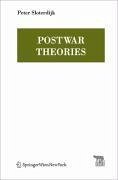Klaus-Dieter Müller Following defeat in battle every culture receives the oppor- nity to re-evaluate its normative basic attitudes or as Sloterdijk puts it 'its moral grammar'. Procedures of this kind either end in a process assuming energies of revenge or the decision is made to transform the cultural rules ascertained as detrimental to behavioural patterns of a less harmful form. Is there such a thing as a civilizing in?uence of cultures by reorientation which brings about post-heroic values? Peter Sloterdijk uses the term 'metanoia' to describe this process. He does not mean by this Christian repentance but pragmatic relearning in order to - crease civilisational viability (see p. 14). Sloterdijk calls the victor's post-stressory work of evaluation 'af?rmation'. In his, in reference to 'metanoia' and 'af?rmation', exemplary "excursion into the jubilee culture" of Franco-German re- tions Sloterdijk awards the Germans a "process which at no time complicated but also at no time threatened the metanoe- ical tranformation process of the vanquished German people", which in its extreme forms consisted of triumphant self-hate and aggression towards each and every national tradition.This is re?ected in the biographies of many Germans. In my case it was the same as in many other families, quarrels arose as to guilt and responsibility.
Dieser Download kann aus rechtlichen Gründen nur mit Rechnungsadresse in A, B, BG, CY, CZ, D, DK, EW, E, FIN, F, GR, HR, H, IRL, I, LT, L, LR, M, NL, PL, P, R, S, SLO, SK ausgeliefert werden.

